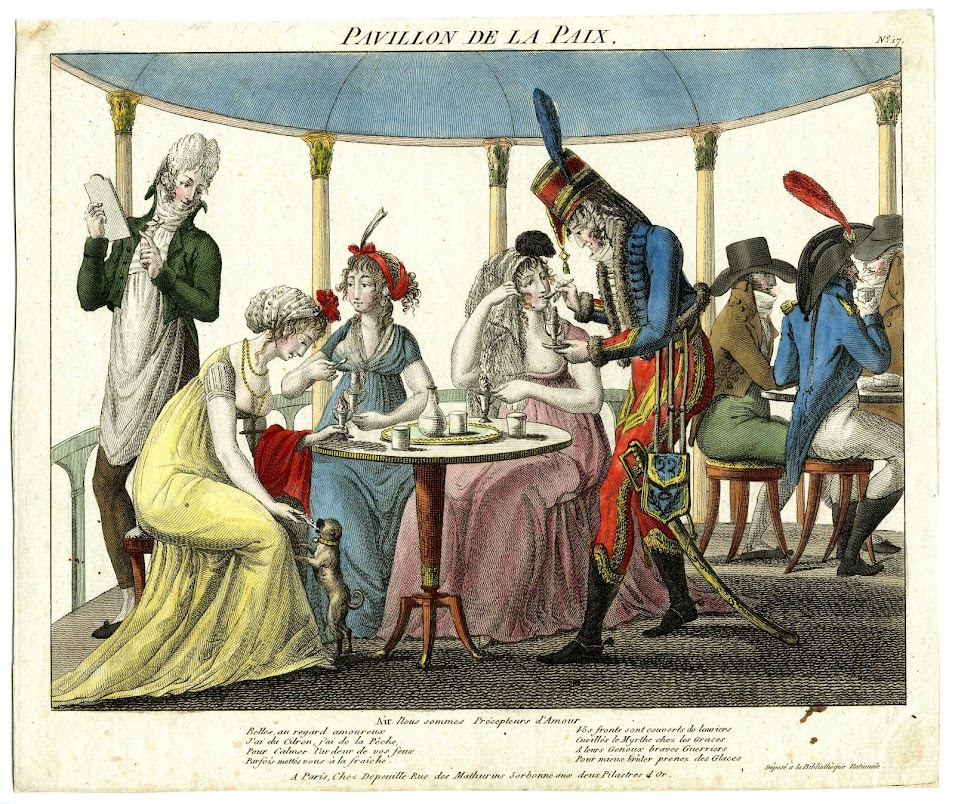It is a phrase we read every so often, but sometimes I think we as in "people of today" don't really understand the meaning.
Tenir salon is often misunderstood as being a hostess with generous supply of coffee, tea and cake, where great minds meet and greet. But is it? I think Wikipedia has a nice introduction to it:
"A salon is a gathering of people under the roof of an inspiring host, held partly to amuse one another and partly to refine the taste and increase the knowledge of the participants through conversation"
It's not the quantity or the quality of your tea, but the quality of the mind what would entice interesting people to attend your salon. When we read that Rahel Varnhagen or Johanna Schopenhauer, or Germaine de Staël or Elisa Baciochi or the dowager duchess Anna Amalia, Caroline von Humboldt and many more held salon, it's like a badge of honour, saying that these women were intellectually on a level with their guests, and also gifted with diplomacy and tact.
 |
| Watercolor by Caspar Melchior Kraus, of an evening gathering at the dowager duchess Anna Amalia (ca. 1795). Goethe Nationalmuseum, Weimar |
To give an example: a great beauty or a rich lady could easily give a soirée, and certes, some big names and other celebrities would show up. But they would not be salons. You could have spirited conversation at the Tivoli. Or the Frascati. But that wouldn't be salons.
That name is reserved to someone who inspires mutual conversation with a great mind, what entices that man or woman (though men were more accepted to be intellectual…) to attend your salon, and you might do a bit of name dropping to invite somebody else, and thus widen the circle.
A painter might be interested to hear, what a scholar of ancient history might think of specific great myth, and again that historian would be interested, how a writer or an actor would interpret that feeling, and a politician would try to understand how to mingle it with recent events and they and everyone else would go home feeling that they would have gained a little more insight in that topic.
Some of the greatest salons didn't even offer any refreshments, or very little, and you'd better bring your own buttered bread along or eat before you attended the gathering. The conversation was the real delight.
And in that light, really think that we ought to pay much more attention to the phrase "She established a salon" or "salonnières", as this leads us to some of the most interesting ladies in our time period, what would frankly blow us away with their knowledge, wit and intellect.
P.S.: Charlotte von Schiller is often seen as a droopy little wife of a genius. But she as well as her sister Caroline established a salon. Should tell us a wee bit about them, shouldn't it?
 |
| Found this lovely little gravure of a parisian salon at this art dealers: |
